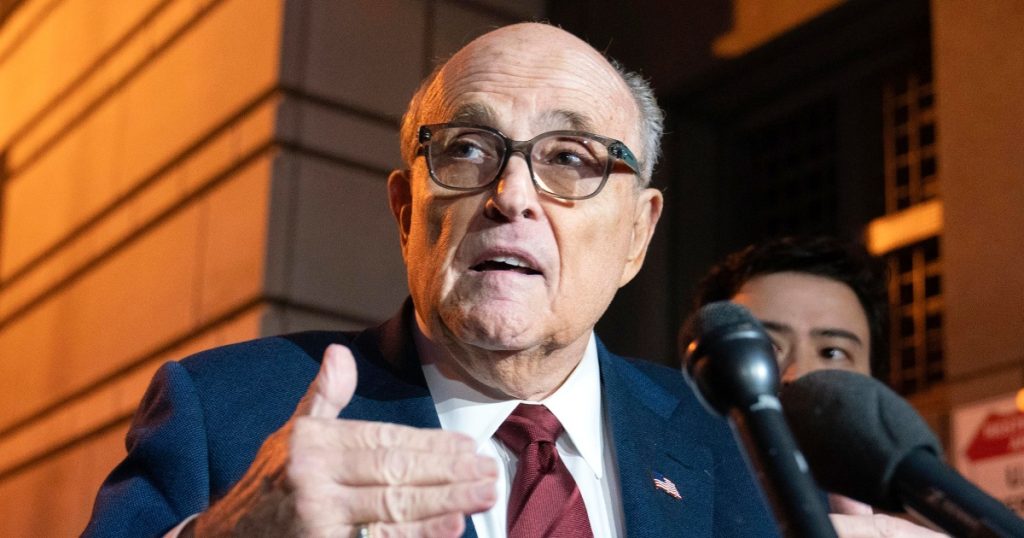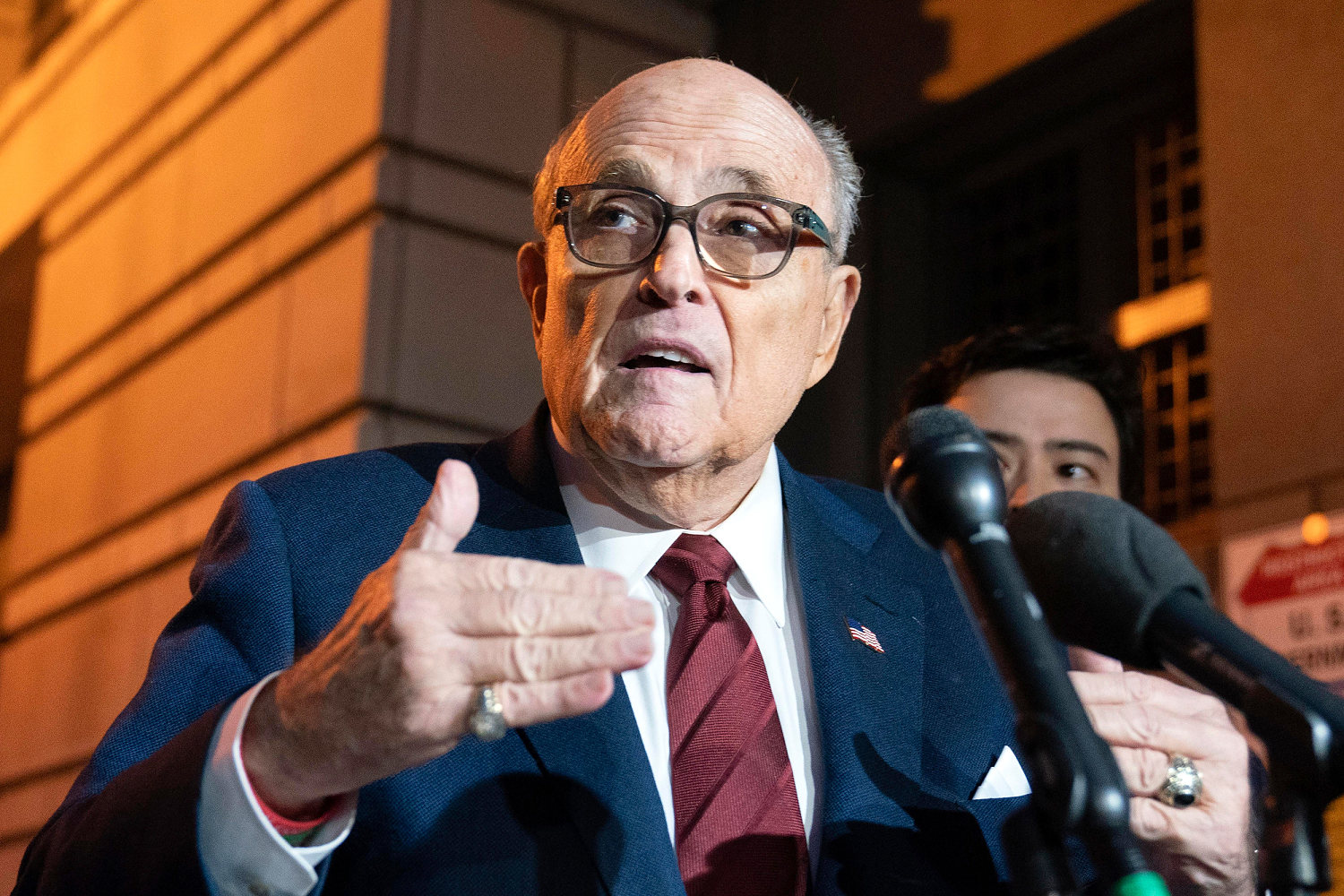

WASHINGTON — Rudy Giuliani, the once-respected former New York mayor who represented former President Donald Trump in his ill-fated attempt to overturn the results of the 2020 presidential election, has filed for bankruptcy after a jury in Washington, D.C., returned an initial $148 million verdict against him last week for defaming two former Georgia election workers.
The filing in New York came a day after a court ordered that Giuliani must immediately pay $146 million to the former election workers, Ruby Freeman and Wandrea “Shaye” Moss.
Giuliani spokesperson Ted Goodman said in a statement that the bankruptcy filing “should be a surprise to no one.”
“No person could have reasonably believed that Mayor Rudy Giuliani would be able to pay such a high punitive amount,” Goodman said. “Chapter 11 will afford Mayor Giuliani the opportunity and time to pursue an appeal, while providing transparency for his finances under the supervision of the bankruptcy court, to ensure all creditors are treated equally and fairly throughout the process.”
Michael Gottlieb, an attorney for the mother and daughter former election workers, said, “This maneuver is unsurprising, and it will not succeed in discharging Mr. Giuliani’s debt to Ruby Freeman and Shaye Moss.”
The filing lists Giuliani’s assets as being between $1 million and $10 million and puts his current total debt at $151 million, including close to $1 million owed in back taxes. It also noted that he has a number of other lawsuits pending against him, and put his total estimated liabilities at between $100 million and $500 million.
The bankruptcy case been assigned to Judge Sean H. Lane, who, like Giuliani, was an assistant U.S. Attorney for the Southern District of New York.
By filing a voluntary Chapter 11 petition, Giuliani will get protection from creditors under the “automatic stay” feature of federal bankruptcy law, which, with some exceptions, halts ongoing litigation as well as the enforcement of pre-existing judgments. Should the judgment withstand any potential appeal, Giuliani would not be able to eliminate his debt to Freeman and Moss. Damages stemming from defamation cannot be eliminated in bankruptcy.
The judge who presided over the Freeman and Moss defamation case lifted a 30-day pause on the judgment on Wednesday after the mother and daughter said they were concerned he’d try to hide his assets.
“Giuliani’s failure to ‘satisfy even more modest monetary awards entered earlier in this case,’ provides good cause to believe that he will seek to dissipate or conceal his assets during the 30-day period,” U.S. District Judge Beryl Howell wrote in her order.
The decision allowed Freeman and Moss to go after Giuliani’s assets in New York and Florida.
An eight-person jury in Washington, D.C., initially awarded Freeman and Moss over $148 million in damages last week after the judge found Giuliani liable for repeatedly defaming them by falsely accusing them of carrying out election fraud in Georgia during the 2020 presidential election. In her order Wednesday, Howell reduced the verdict by about $2 million to reflect damages the pair were paid in a settlement last year with the other defendant in the case, the TV network OAN.
This is a developing story. Please check back for updates.

 Latest Breaking News Online News Portal
Latest Breaking News Online News Portal




